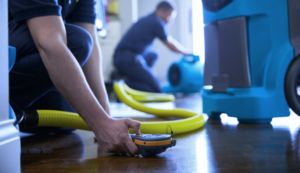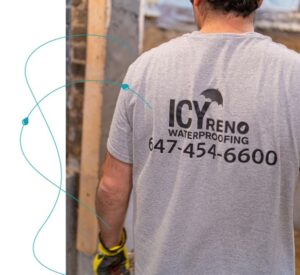Safeguard Your Place – Unveil the Power of Roof Waterproofing

Your roof acts as the guardian of your home, shielding you from the elements. However, constant exposure to sun, rain, and wind can take a toll on even the most durable roof materials. This is where roof waterproofing emerges as an essential shield, protecting your property from water damage and ensuring the longevity of your roof.
Understanding Roof Waterproofing
Roof waterproofing refers to the application of materials and techniques that create a barrier on your roof, preventing water from infiltrating your building envelope. This barrier acts as a shield, deflecting rainwater and preventing it from seeping through cracks, seams, or other vulnerabilities in your roof system.
How Does Roof Waterproofing Work?
The specific method of roof waterproofing can vary depending on the type of roof you have and the chosen material. However, the general process often follows these steps:
Inspection and Preparation: A thorough inspection is conducted to identify any existing damage or vulnerabilities. The surface is then cleaned and prepared to ensure proper adhesion of the waterproofing material.
Membrane Installation: Depending on the chosen method, a liquid membrane may be applied, a sheet membrane may be rolled out and secured, or a combination of both approaches may be utilized.
Flashing and Sealing: Special attention is paid to critical areas like roof seams, vents, and chimneys, where additional flashing and sealing techniques are employed to prevent water ingress.
Curing and Maintenance: Once the waterproofing material is applied, it requires proper curing time to ensure optimal performance. Regular inspections and maintenance are crucial to maintain the integrity of the waterproofing system.
Benefits of Getting Roof Waterproofing
Investing in roof waterproofing offers a multitude of advantages:
Prevents Leaks and Water Damage: The primary benefit is preventing water from entering your building, safeguarding your walls, ceilings, and belongings from costly water damage.
Extends Roof Lifespan: By protecting the roof from water infiltration, you prevent premature wear and tear, ultimately extending the lifespan of your roof and reducing the need for costly replacements.
Improves Energy Efficiency: A properly waterproofed roof can help regulate indoor temperature, leading to improved energy efficiency and potentially lower energy bills.
Enhances Building Value: A well-maintained and protected roof can increase the overall value of your property.
Provides Peace of Mind: Knowing your roof is shielded from the elements offers peace of mind and allows you to focus on other priorities.
Types of Roof Waterproofing
The most common types of roof waterproofing materials include:
Liquid-applied membranes: These are often polyurethane or acrylic-based coatings applied directly to the roof surface, forming a seamless and flexible barrier.
Sheet membranes: These come in various materials like rubber, PVC, or TPO, and are installed in prefabricated sheets that are then secured and sealed at the seams.
Bituminous membranes: These traditional membranes are composed of asphalt and are often used on flat roofs due to their cost-effectiveness and durability.
Why Hire a Professional for Roof Waterproofing Compared to DIY?
While DIY roof waterproofing may seem tempting, consider the following reasons to entrust this task to a professional:
Expertise and Experience: Professionals possess the knowledge and experience to select the most appropriate waterproofing method for your specific roof type and condition.
Safety Considerations: Working on roofs can be hazardous, and professionals are trained and equipped to handle the risks associated with heights and working on sloped surfaces.
Proper Installation Techniques: Improper installation can compromise the effectiveness of the waterproofing system, potentially leading to future leaks and damage.
Warranties and Guarantees: Reputable professionals often offer warranties on their work, providing you with peace of mind and recourse in case of any issues.
Factors to Consider When Getting Roof Waterproofing Works Done
Type of Roof: Different roof types require specific waterproofing methods and materials.
Condition of Your Roof: The extent of existing damage and the overall condition of your roof will influence the type of waterproofing needed.
Budget: Explore different options and compare quotes from reputable roof waterproofing contractors to find a solution that aligns with your budget.
Experience and Reputation: Opt for a licensed and insured professional with a proven track record and positive client feedback.
Warranty and Guarantees: Understand the terms of the warranty offered on the materials and workmanship.
Conclusion
Roof waterproofing plays a crucial role in safeguarding your home from water damage, ensuring the longevity of your roof, and protecting your valuable assets. By understanding the benefits, types, and importance of professional installation, you can make an informed decision that protects your investment and provides peace of mind for years to come.







